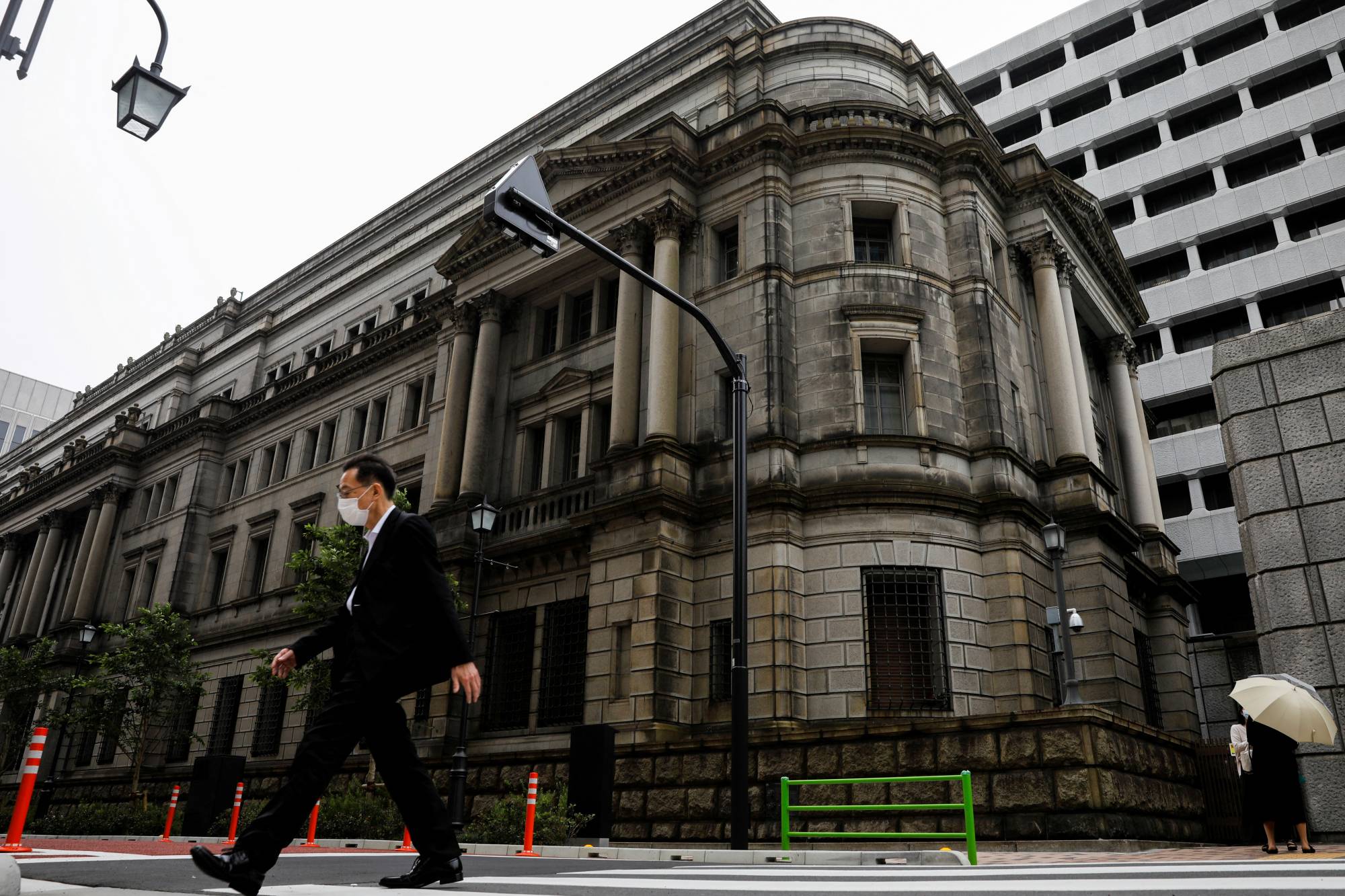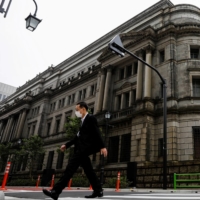Japan's core consumer inflation in April rose above the central bank's 2% target, hitting a more than seven-year high as increases in energy and commodity costs are causing broader price hikes that are pressuring households.
The rise in consumer prices is making it harder for the Bank of Japan to convince markets it will keep monetary policy ultraloose and as the gains fuel public concerns about pushing up living costs.
The nationwide core consumer price index (CPI), which excludes volatile fresh food costs but includes those of energy, surged 2.1% in April from a year earlier, government data showed on Friday.
That marked the fastest rise in a single month since March 2015 and matched the median forecast in a Reuters poll.
The gain was much stronger than a 0.8% year-on-year rise in March, as the impact of mobile phone fee cuts from April last year that have pulled down overall CPI since then starts to fade from yearly comparisons.
The overall rate of price increases in Japan has remained modest compared with much sharper rises in the United States and other advanced economies, as sluggish wage growth in the world's third-largest economy makes it harder for firms to raise prices.
The BOJ has retained its massive monetary stimulus as it seeks to have inflation stably reach 2% on the back of strong wage growth, even as a weaker yen pushes up food and energy prices and other major central banks are tightening policy.



















With your current subscription plan you can comment on stories. However, before writing your first comment, please create a display name in the Profile section of your subscriber account page.